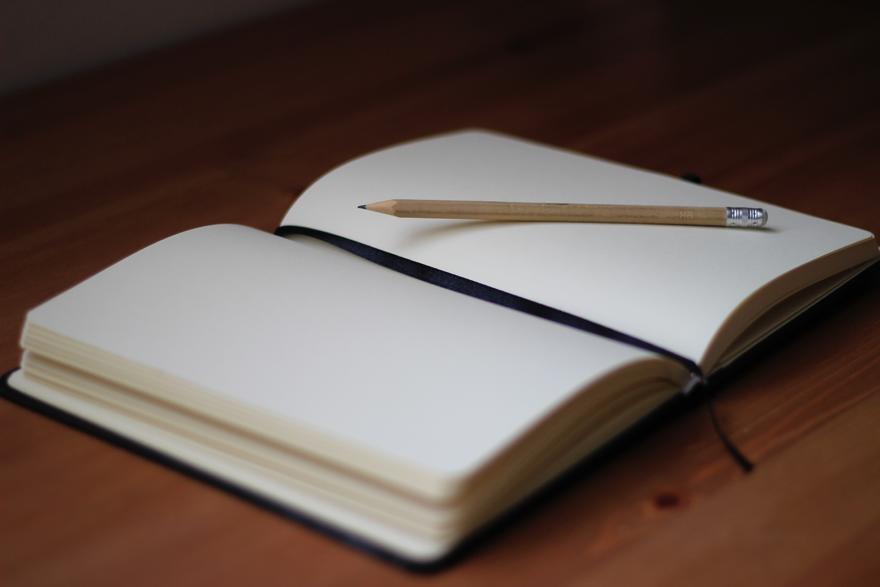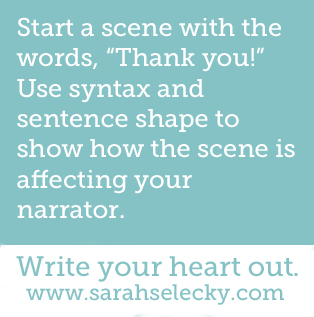What is the shape of a sentence?

Recently my daily prompts subscribers received the following prompt in their inbox:
This one was an advanced assignment. (Hey – I want my prompts to be fun and engaging, but I want to make you work, too.)
Janet emailed me a great question that day – I’m paraphrasing, but basically it said, “What do you mean, sentence shape?”
I’m so glad she asked.
In my last letter, I wrote about the necessity for deliberate practice – writing with concentration, preferably in solitude, and going directly headfirst into what challenges you.
My daily writing prompts are meant to help you with your deliberate practice. So – if this prompt puzzles and intrigues you, here’s some encouragement to go forth and practice sentences deliberately.
Sentence shape and form is like molecular chemistry for writers!
First step: study sentences. Go to your favourite stories and look at the sentences themselves. Isolate them from their paragraphs. Read them out loud, and copy them by hand in your notebook. Collect several different-feeling sentences and consider them as a writer. What decisions were made in the ordering of the words? What’s moving behind them, other than the obvious content?
If this is the first time you’ve looked at sentences on a granular level like this, it’s helpful to consider the length of a sentence first. What does a long sentence feel like, compared to a short one?
Short ones might show speed or suddenness, anxiety, or sharp feelings, like fear. (Or excitement, for that matter. It depends on context.)
Long ones might show patience or sadness, curiosity, or concentration. Again, it depends on the story. But all sentences have an energy – you can feel this in your breath and in your body as you read them. Pay attention to where this energy comes from, and how the sentence transmits it.
See if you can get a sense of what I mean by shape:
-
Where are the verbs? Where are the nouns?
-
How many short words are in the sentences, compared to long, multi-syllabic words?
-
Where do the short words sit compared to the longer ones?
-
Are there more consonants or vowels being used?
-
Does one sentence sit in contrast to another one that’s nearby? How does that make you feel?
For more on this kind of sentence study – if you’ve been working on your writing practice for several weeks now and you’re ready to take your deliberate practice up a level – read Stanley Fish's book How to Write a Sentence: And How to Read One and Francine Prose's Reading Like a Writer. Both are excellent places to learn about crafting language on this deep level.
Also, George Saunders wrote a beautiful essay about sentences in his collection, The Braindead Megaphone. The essay is called "Thank you, Esther Forbes."
What are your favourite sentences, and why? Here is a perfect opportunity to really geek out in the comments, below. I remember stopping at a sentence in Fortress of Solitude and feeling the top of my head lift off. I’m going to see if I can locate it for you.
Meanwhile: tell me yours, tell me yours.
xo,

Photo credit (top): Jan Kahanek on Unsplash.
Disclosure: This post contains affiliate links. If you purchase something using one of these links, I may earn a commission. I only recommend books or products I trust.


3 comments
Leave a comment